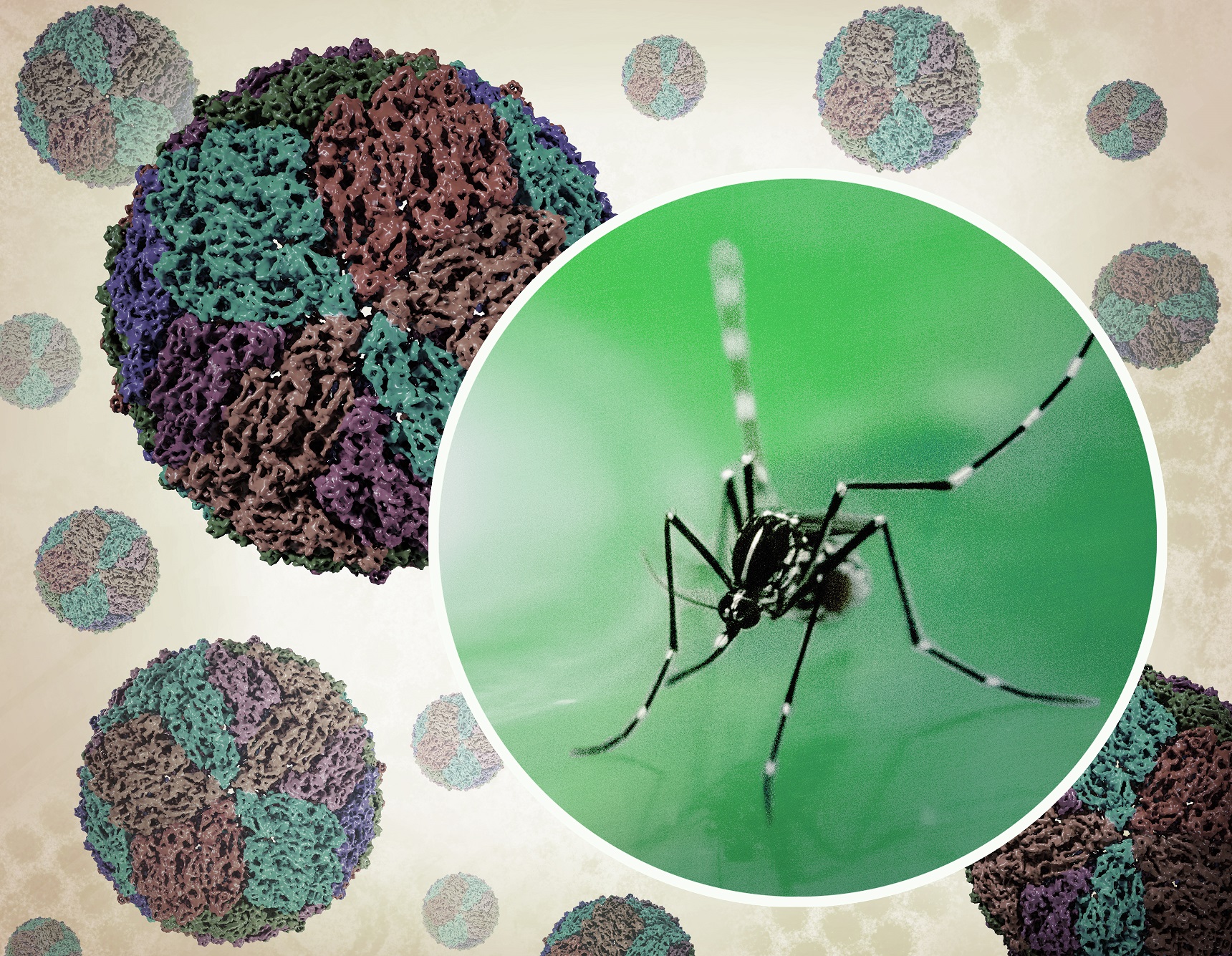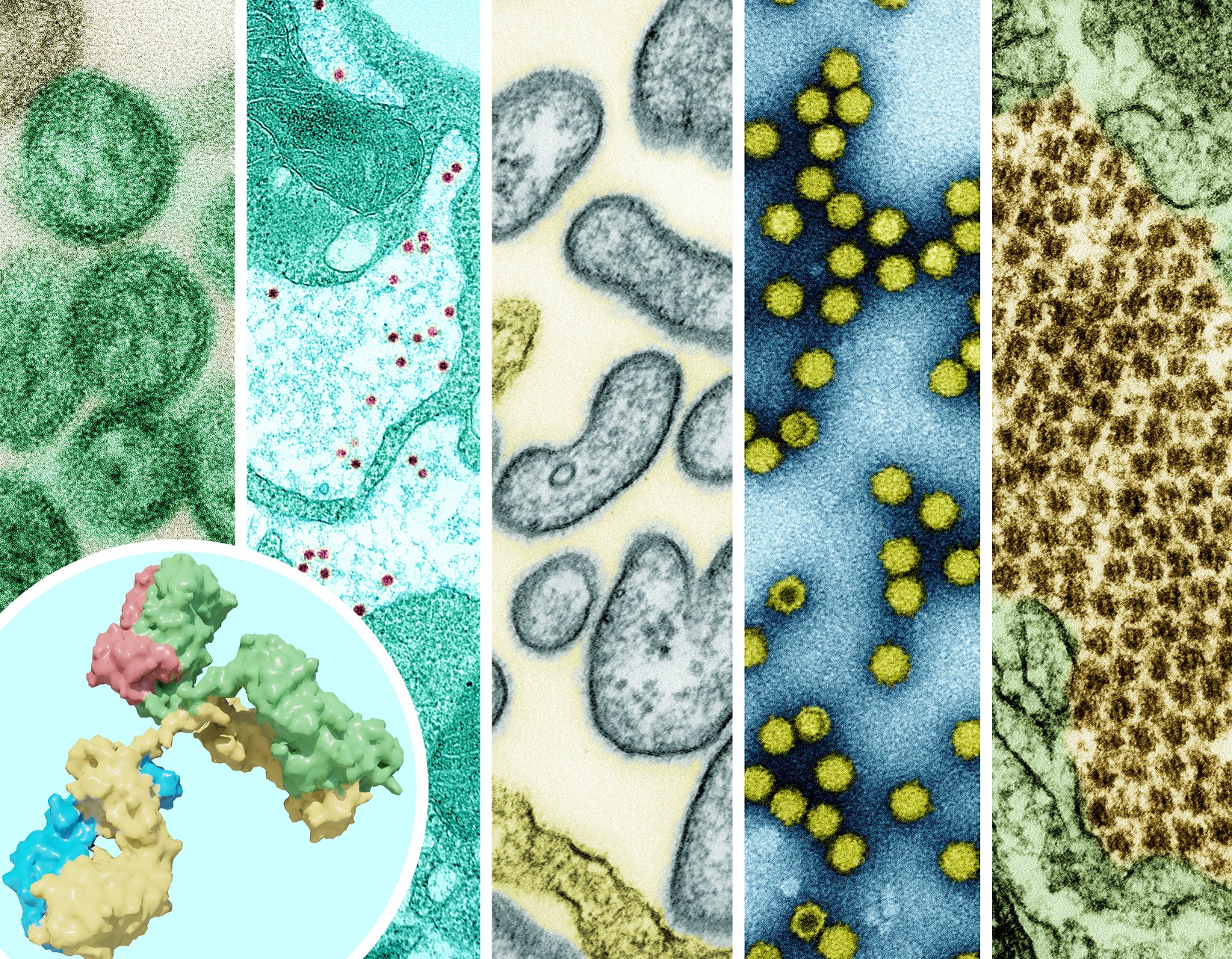NIAID-supported investigators are pursuing several approaches to treat dengue infection. Some scientists are working to identify cellular and viral proteins to use as targets for drug intervention. In other studies, researchers are generating and evaluating neutralizing monoclonal antibodies and small molecule drugs in animal models. Results from these animal trials may result in new treatment options for people with dengue. In one NIAID-funded contract, researchers evaluated about 7,500 antiviral compounds in vitro to test their efficacy against dengue. So far, 49 have been identified for further evaluation.
NIAID-funded genomic and bioinformatics resources offer scientists new tools to support the discovery of vaccines, drugs, and diagnostics. For example, the entire genome sequence of theAedes aegypti mosquito, the main carrier of dengue virus, has been decoded and is available to qualified researchers. This information may help investigators identify the mosquito proteins that are essential to support dengue replication and transmission, and allow them eliminate the proteins in transgenic insects. NIAID also provides the scientific community with the genetic sequence data from several hundreds of viral strains that have been isolated from dengue-infected people. This information may help researchers to identify viral sequences associated with disease severity. These free NIAID databases provide scientists with the means to analyze and extract vast amount of genomic data, and advances the understanding and treatment of dengue disease.
Scientific Advances
NIH-Funded Clinical Trial Will Evaluate New Dengue Therapeutic
February 11, 2025A Phase 2 clinical trial will test the safety and efficacy of an experimental treatment for dengue, a viral disease transmitted by mosquitoes.

NIH Awards Establish Pandemic Preparedness Research Network
September 13, 2024The Research and Development of Vaccines and Monoclonal Antibodies for Pandemic Preparedness network—called ReVAMPP—will focus its research efforts on “prototype pathogens,” representative pathogens from virus families known to infect humans, and high-priority pathogens that have the potential to cause deadly diseases. The pandemic preparedness research network will conduct research on high…



